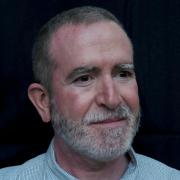The condemnation of six scientists for “multiple manslaughter” as a consequence of their failure to warn citizens about the Aquila earthquake in Italy took many by surprise. The ruling, regardless of what happens in the future of this case, will have a serious impact on science communication, the perception of science and discussions about scientific issues.
A lot is at stake, for example:
-How will this affect the efforts and progress made in recent years to bring scientists closer to the public as communicators? -How can we now convey the message that science is crucial to decision-making? -How should we react to demonstrations that science is poorly understood?
Furthermore, the criticism and opposition to the Aquila ruling by the scientific community and by science communicators will certainly use the logical and correct arguments that science is not about certainties, cannot define absolute truths, and in many cases has a high level of unknown quantities. People who understand science know that this does not invalidate its use in decision-making – quite the contrary. However, these arguments will play into the hands of anti-science movements, such as creationists and climate change skeptics, who are attacking scientists as being unable to agree among themselves and of science as being unable to provide unequivocal answers and absolute certainties.
Clearly, this is a problem about and for science communication.
Facilitator
Session speakers
No speakers have been added yet.

